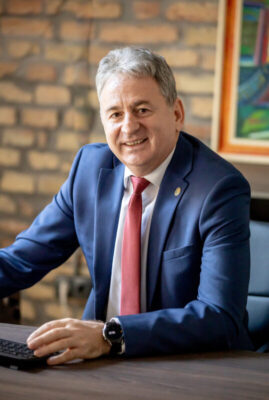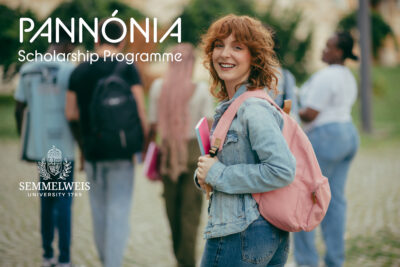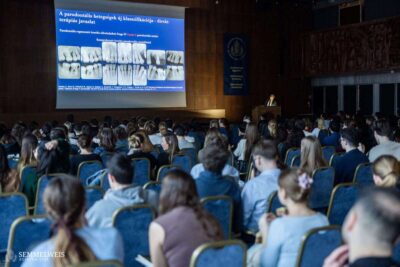The Pannónia Scholarship Programme at Semmelweis University was launched on June 1, the Directorate of International Relations of Semmelweis University points out. The scholarship program, managed by the Tempus Public Foundation, offers long- and short-term study trips, internships, professional training opportunities, or research mobility grants for university students, faculty, and staff on six continents, in almost every country of the world.
 “Semmelweis University has been making an impact on global health for more than 250 years: through our students from 119 countries, more than 200 partnerships, and numerous international research collaborations. The Pannónia Programme is the latest project financed by the Hungarian Government. It is an excellent tool for the internationalization of our university through supporting the mobility of our students, faculty members, and researchers. The Pannónia Programme is more open, more flexible, and offers more opportunities and funding schemes than any mobility program before,” said Dr. Marcel Pop, Director of International Relations.
“Semmelweis University has been making an impact on global health for more than 250 years: through our students from 119 countries, more than 200 partnerships, and numerous international research collaborations. The Pannónia Programme is the latest project financed by the Hungarian Government. It is an excellent tool for the internationalization of our university through supporting the mobility of our students, faculty members, and researchers. The Pannónia Programme is more open, more flexible, and offers more opportunities and funding schemes than any mobility program before,” said Dr. Marcel Pop, Director of International Relations.
The student mobility grants include support for long-term study trips, internships, and placements for recent graduates for 2-12 months. A supplementary call for traineeship applications is currently open for students of medicine, dentistry, and pharmaceutical sciences until June 26, and applications with the required documentation are to be submitted by July 12, 12 p.m. Applicants for placements are assisted by faculty coordinators. These scholarships will be awarded no later than July 31.
As a new feature, students in master’s, PhD, and undivided programs can also apply for a research mobility grant abroad of the same duration. The scholarship value also depends on the mobility destination, as the countries concerned are categorized into three groups with corresponding amounts.
Depending on the country of destination, this can range between HUF 350-400,000 per month.
One of the new offers of the Pannónia Programme is that you can also apply for short-term student mobility grants for study or research purposes. As funding can be requested for 2-30 days, active conference attendance or summer university programs to support professional development will also become available. Depending on the level of training, the destination, and the length of the mobility, the short-term grant amounts to HUF 5-35,000 per day.
As a further novelty, the program will support study trips of 1-6 months’’ duration with a higher amount of HUF 450-500,000 per month, depending on destination, provided that the student spends the given period in a higher education institution ranked in the top 250 of the Times Higher Education (THE) or Quacquarelli Symonds (QS) international higher education rankings and is applying for an Excellence Scholarship. Students of master’s and undivided programs can also apply for tuition, travel, and housing grants in addition to the scholarship.
Grants of 2-60 days are available for study, training, or research trips abroad for academics, researchers, and staff. Depending on the country of destination and the length of the mobility, the scholarship amounts range between HUF 16,500-70,000 per day. The Pannónia Programme also makes it possible for the university to apply for a grant to host lecturers from abroad on a short-term basis. Applications for staff mobility grants will be accepted on a rolling basis, subject to availability.
For further information contact the Mobility Office at the Directorate of International Relations.
Melinda Katalin Kiss
Translation: Judit Szabados-Dőtsch
Image credit: Directorate of International Relations


